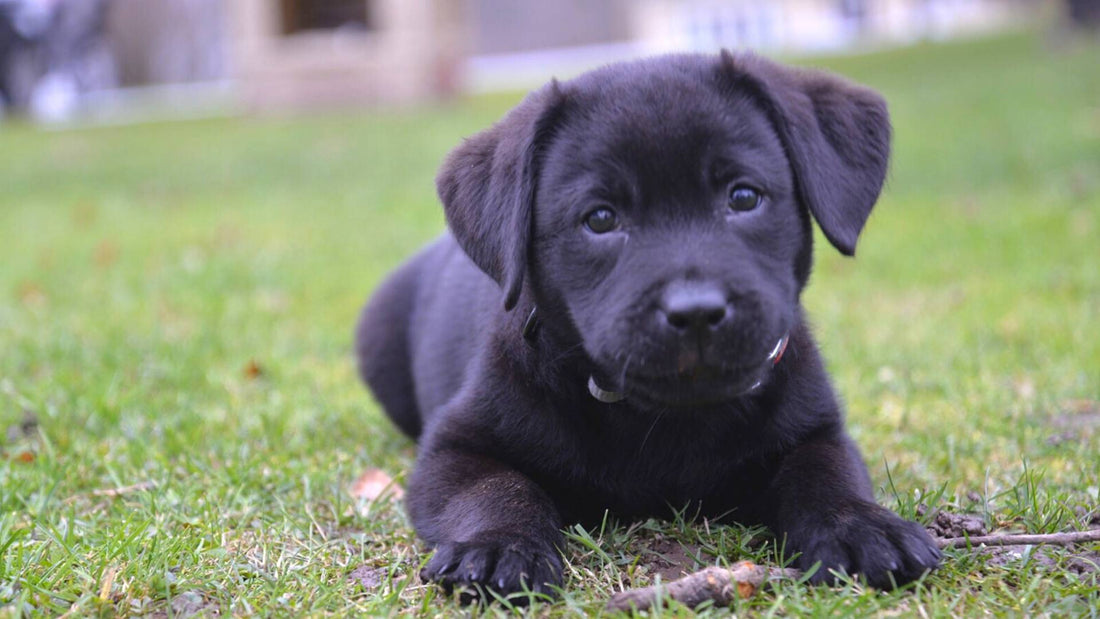
How Often Should I Feed My Puppy?
A Simple Feeding Guide for New Puppy Owners
Bringing a new puppy home is a little bit magical… and a lot of learning. One of the biggest questions I hear from new puppy parents is:
“How often should I feed my puppy?”
It’s a great question — and it makes sense that you’re asking. Feeding schedules, portion sizes, safe treats, treat timing… it can all feel a bit overwhelming when you're trying to do your best. The good news? It doesn’t have to be complicated.
In this guide, I’ll walk you through:
- How often puppies need to eat (based on age)
- Why routine matters
- How much food to give
- What kinds of treats are safe and how to use them
- Why I recommend starting with natural food and treats for growing pups
Table of Contents
- How Often Should Puppies Eat?
- Why Feeding on a Routine Is So Important
- How Much Food Should I Give My Puppy?
- What Kind of Food Should I Feed My Puppy?
- What About Treats?
- Don't Forget About Water
- A Few Feeding FAQs I Hear All the Time
- Final Thoughts: Keep It Simple, Keep It Consistent
- Want More Puppy Help?
How Often Should Puppies Eat?
The number of meals your puppy needs depends mostly on their age and breed size. Here's a quick breakdown:
| Puppy Age | Meals Per Day |
|---|---|
| 8–12 weeks | 4 meals |
| 3–6 months | 3 meals |
| 6–12 months | 2 meals |
Younger puppies have tiny tummies and need frequent meals to keep their blood sugar stable and support healthy growth. As they get older, you can gradually reduce the number of meals.
Toy & Small Breeds: May need to stay on more frequent meals for longer, as they’re prone to low blood sugar.
Medium to Large Breeds: Often ready to shift to two meals a day by 6–7 months, depending on activity level and growth.
Why Feeding on a Routine Is So Important
Dogs thrive on routine — and that starts from day one. A regular feeding schedule isn’t just about nutrition; it also helps with:
- Toilet training
- Behaviour (fewer hunger-fuelled zoomies)
- Confidence and predictability
Feed your puppy at the same times each day — morning, midday, and early evening. Leave food down for 15–20 minutes, then remove it if uneaten. This helps prevent fussiness later on.
“Reggie would start doing little ‘meal-time circles’ in the kitchen a few minutes before his bowl hit the floor. Dogs really do watch the clock!”
How Much Food Should I Give My Puppy?
This depends on:
- Age and breed
- Type of food (kibble, raw, wet, or home-prepared)
- Activity level
Start with the guidelines on your puppy food packaging — these are a useful starting point based on weight. Adjust based on your puppy's body condition.
Tip: Feel their ribs (they should be easy to feel, not sticking out). Look for a waist and adjust food amounts accordingly.
“With Dolly, I noticed she was starting to look a bit round at 5 months — even though I was following the packet. I reduced her meals just slightly and she was back to her healthy shape in no time.”
What Kind of Food Should I Feed My Puppy?
Choose natural, minimally processed food that supports healthy growth, digestion, and behaviour.
Look for:
- Named proteins (chicken, turkey, beef, etc.)
- High meat content (avoid meat meal or derivatives)
- No artificial colours, preservatives, or fillers
- Formulated for puppies — with proper calcium and nutrients
If you’re unsure where to start, ask your local pet shop (or me!) for help picking a balanced, puppy-friendly food.
What About Treats?
Treats and chews are great for bonding and training — but keep them small and simple, especially for young pups.
Use:
- Soft training treats
- Single-ingredient options like dried sprats or pate
- Bits of their normal food as rewards
Avoid:
- Rawhide (difficult to digest)
- Large, hard chews
- Treats with unknown or long ingredient lists
Rule of thumb: Treats should be less than 10% of their daily calories.
“With Reggie, I used our small Just Meat Little Trainers — they were a great low fat way to keep him engaged through a whole short session!”
Don't Forget About Water
Fresh, clean water should be available at all times — especially with dry food. Puppies dehydrate quickly, so check their bowl often.
A Few Feeding FAQs I Hear All the Time
“My puppy didn’t eat their breakfast — should I worry?”
Probably not. They may be tired, teething, or adjusting. If they skip multiple meals or seem off, speak to your vet.
“Can I use treats instead of meals for training?”
Yes — just reduce the amount of food at meals to balance the calories.
“How long should I keep feeding the breeder’s food?”
Ideally for 5–7 days, then slowly transition to your chosen food over 7–10 days.
Final Thoughts: Keep It Simple, Keep It Consistent
Feeding your puppy doesn’t have to be complicated. Stick to a routine, watch their weight, choose good-quality food and treats, and keep water available — and you’re off to a great start.
For any further help and advice please contact us on 01484 246420 and why not join our social media channels and online community on Instagram, Facebook or YouTube.
With Wags and Woofs,
Laura, Dolly & Reggie


